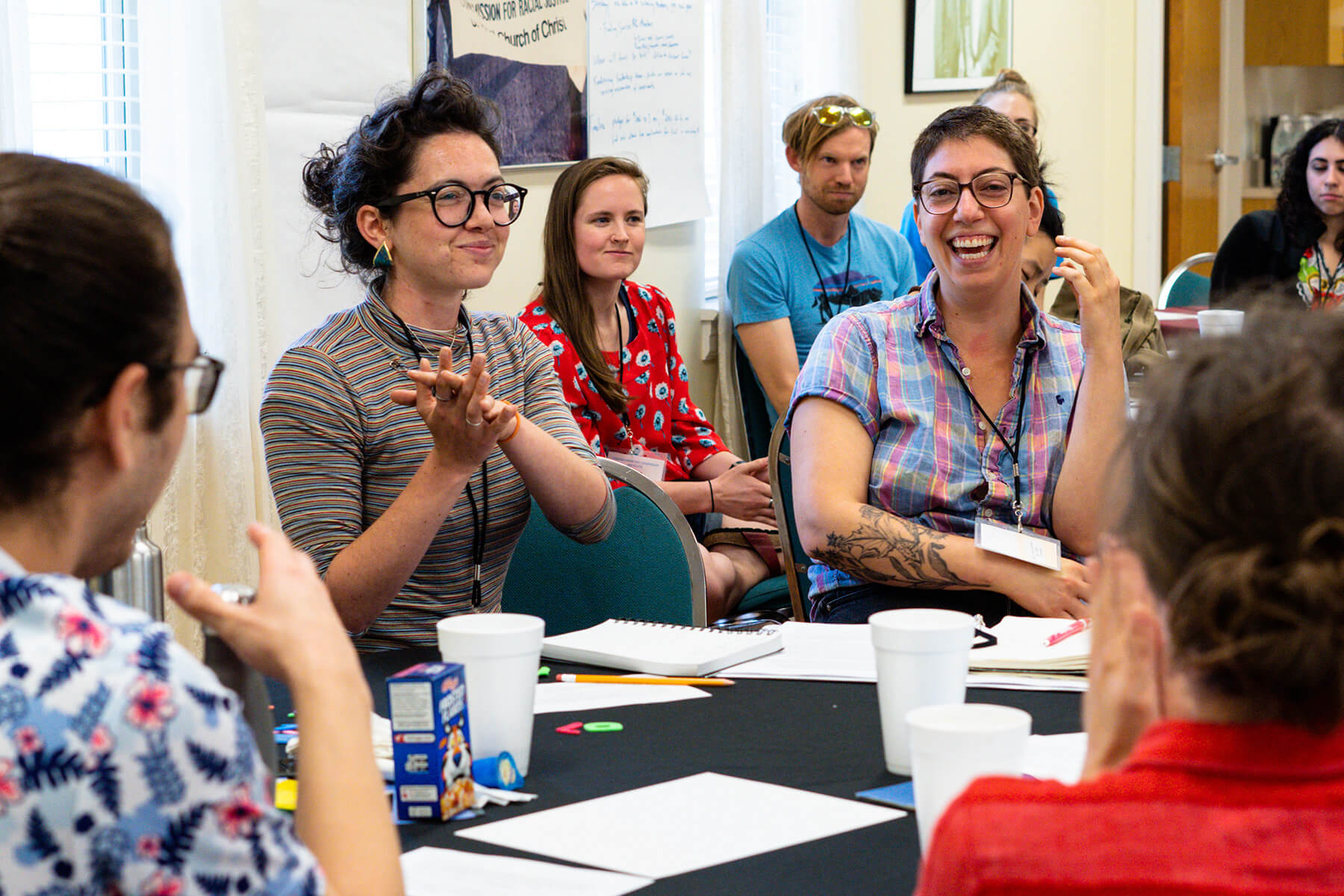Resource Generation’s social justice philanthropy principles call us to focus on the root causes of social, racial, economic and environmental injustices. How we get to those root causes and who is making strategic choices along the way matters too. The principles also call us to support the leadership of those most directly impacted by harmful systemic oppression and exploitation. Fighting back against those harmful systems and building new ones can often include blocking or moving specific pieces of legislation, and blocking or moving specific people — elected and appointed officials — who create, change and enforce them
If a donor directs a contribution to a candidate directly, the candidates would be accountable to the power of the donor. If a donor directs a contribution to membership organizations doing community organizing, then the candidates are accountable to communities impacted and the issues they prioritize. And the community institution gets stronger and more skilled and larger as a result of participating in that election.
Giving in this way builds the power of movement organizations, rather than candidates, and redistributes power to the community rather than keeping the power with the donor.
So how to support the leadership of those most directly impacted by harmful systemic oppression and exploitation to participate in elections? One organization that is part of my personal giving plan is Community Voices Heard (CVH) which was founded by a small group of mothers on welfare in 1996. Today CVH is a multiracial membership organization of women of color and low-income families working over the long term to secure racial, social and economic justice for all New Yorkers. As a lifelong New Yorker who has lived and worked in and who has family and community in many parts of our state this is a mission I am here for! Engaging with elected officials and elections is one component of their work that has emerged over time — they seek to “create spaces for member-leaders; those directly impacted, to engage in conversation with governmental players to lift of existing problems, highlight alternatives and together figure out possible solutions to these racial, social and economic inequities.” One way to find out about hundreds of grassroots groups like CVH where you live and across the country is by checking out Movement Voter Project.
Funding electoral organizing is also an important way to address root causes and we encourage our members to think beyond funding tax deductible 501(c)(3)s while maintaining a commitment to our principles. Here’s why: Resource Generation is a community of individual people with money and the fact that we are people and not foundations matters. Many RG members have direct access to money in bank accounts and stocks that aren’t subject to the restrictions that come along with establishing a tax-dodging foundation or donor-advised fund.
The opportunity we have as individuals is to both pay our fair share in taxes, and to fund communities most impacted by injustice to build their own power to hold elected officials accountable to their own vision of what communities need.
Unlike foundations, individuals can give no-strings attached money to:
- 501(c)(3) organizations which cannot endorse candidates and can engage in limited issue advocacy), or
- 501(c)(4) organizations which can do lobbying and endorse candidates, or
- 527 organizations which can do more direct candidate campaign work.
Many social movement formations participate in all three of these types of institutions! Yet I know from my years of experience that the 501(c)(3) organization is the easiest to raise money for since it is the only formation that offers a tax deduction to donors and most foundations in my experience will only make grants to 501(c)(3) organizations. However there are limitations in just funding 501(c)(3)s. This is where individual donors who feel more solidarity with social movements than with traditional philanthropy habits can really show up in a hugely impactful way!
Switching the power on political giving is why I give to a 501(c)(4) or other flexible option whenever I can. Check to see if the 501(c)(3) if groups that you already support have a c(4) you can switch your contribution to! At the same time I know that 501(c)(4) organizations are not inherently better and our movements require many tactics, 501(c)(3)s are an important part of the movement ecosystem too, and I also give directly to candidates sometimes. By choosing to lean into the electoral options when it is available, and general operating support all the time, I am loosening the restrictions all of these groups have on their dollars.
In mainstream electoral giving is often directed specifically to candidates and closely aligned institutions – building the capacity of a candidate or a campaign. Grassroots electoral giving, on the other hand, supports communities to build their own long-term power, to define the issues that matter to them, and to support or block candidates who would hurt communities if elected. Elections and movements are connected and I have learned from many grassroots organizers over the years that engaging with elections is a necessary component to build movement power. Keeping communities impacted by issues at the center of leadership is a strategic choice that wins change that is defined by those same communities. And when impacted communities win, we all win.

